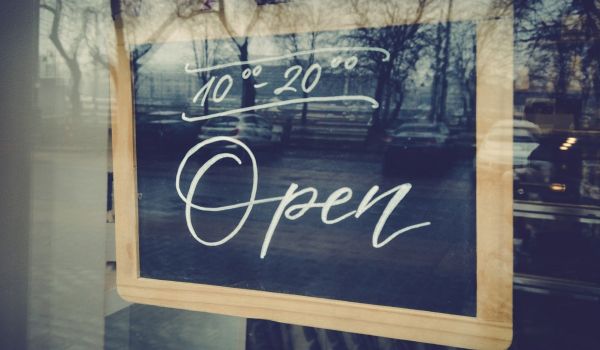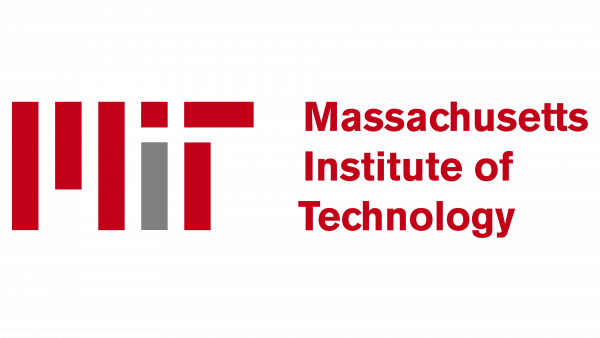On the corner of Broadway and 10th Street in Oakland, a handful of business owners share a space where they are working to set their companies up for success.
The Micro Market Spaces is an offering from the Sanctuary for Sustainable Artistry, a local nonprofit focused on building and supporting local resilient communities in the city. The Downtown Oakland retail space, which is offered at no cost to the micro businesses, is part of its program that also includes technical assistance.
Sanctuary is able to offer the mini storefronts to the businesses with no fees because the organization itself gained access to the property by converting the status of the ground floor to public domain. Nonprofits have the ability to create parks, using both indoor and outdoor spaces. Sanctuary made that conversion on the Oakland ground floor space, making it part of public domain.
“Retail rents are just massively dangerous to the entry point for most new businesses,” says Miles Dotson, cofounder of Sanctuary. And high vacancy rates in the Bay Area — and other parts of the country — aren’t helping to keep the cost down.
“Some deep-pocketed landlords keep spaces vacant while they wait for rents to rise,” Max Sander, first vice president at real estate firm Kidder Mathews, told Mercury News.
Vacant storefronts have a strong impact on neighborhoods. “The lack of retail activity has the potential to negatively affect the broader community and the value of housing in those communities,” notes Erica Moszkowski, doctoral candidate at Harvard Business School.
Oakland’s Micro Market Space, which opened to the public in January and is now home to eight small businesses, is an attempt to put that space to use.
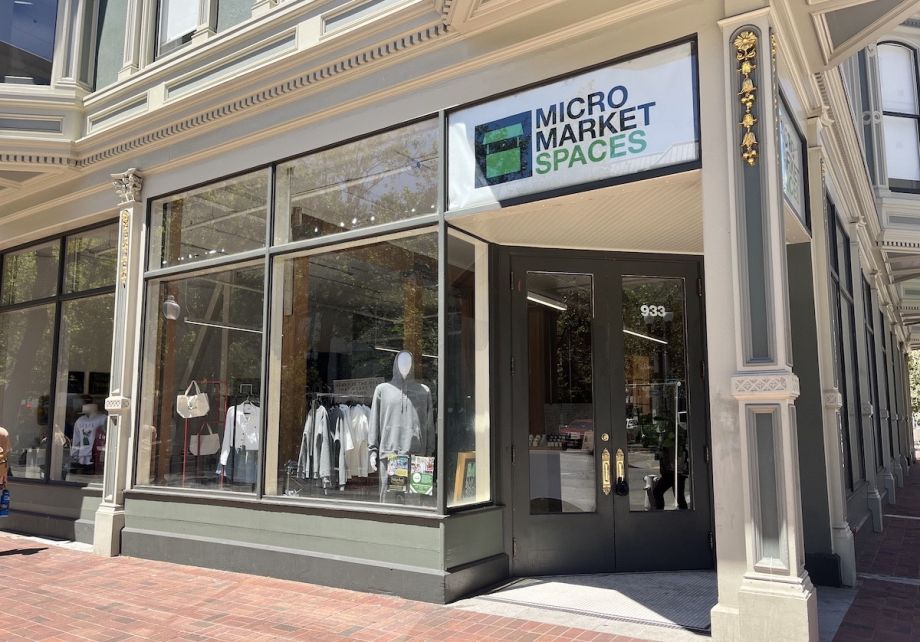
The Micro Market Spaces is an offering from the Sanctuary for Sustainable Artistry. (Photo by Deonna Anderson)
“How can we make space more accessible and more preserved for artists and creatives?” Dotson asks. “Who are the key contributors to the local economy that are typically shut out?”
These are a couple of the questions Dotson, cofounder Sarah Kirnon and their other team members pondered as they brainstormed a project to support small and micro businesses in the city. The initiative is also a way for these business owners to move beyond the pop-up model that isn’t sustainable for long-term success.
Dotson and his team aren’t the only ones thinking about how to invest in local business and revitalize unused commercial space. Ilana Preuss, founder and CEO of Recast City, proposed a similar idea in this op-ed about filling vacant storefronts. What would it look like for decision makers in cities to invest in residential and commercial land trusts for downtown properties? “A subsidy to ground-floor commercial storefronts — in the form of a discounted land trust rent — can provide space for locally owned businesses while preventing gentrification from driving these businesses out of the neighborhood,” Preuss wrote.
At the Micro Market Space, businesses are able to use their section of the space for three months, with the option to stay longer if needed. Dotson described the program as a “lemonade stand” opportunity. Sanctuary’s accelerator is done with an ad hoc approach.
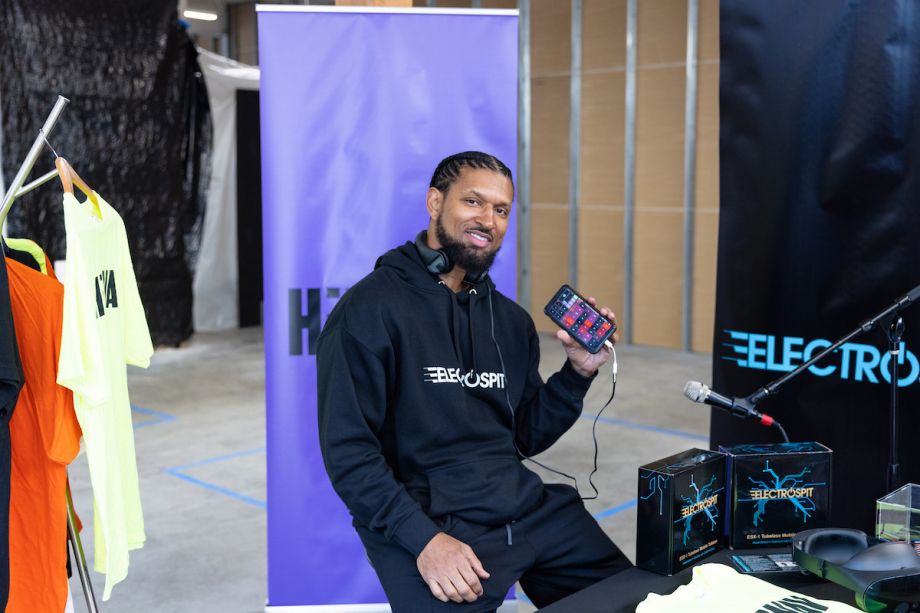
Bosko Kante from Electrospit sells his products at the Micro Market Spaces. (Photo by Ashleigh Reddy)
“By being more direct and ad hoc and supporting them as a coach, we’re able to help them advance goals and see themselves in their process in a way that is sometimes [lost] when you go through larger programs,” Dotson says, who notes that they do not immediately jump into developing a business plan. Instead they want the entrepreneurs to use the time and space to figure out the best way to use their skills and interests to serve the community.
“We’re not as open to people who are not trying to impact and benefit the local community through their work,” Dotson says. “We want them to see themselves as direct drivers of economic impact and service to the community.”
Additionally, business owners are able to depart the program at any point, if they come to the realization that this work is not the right fit for them.
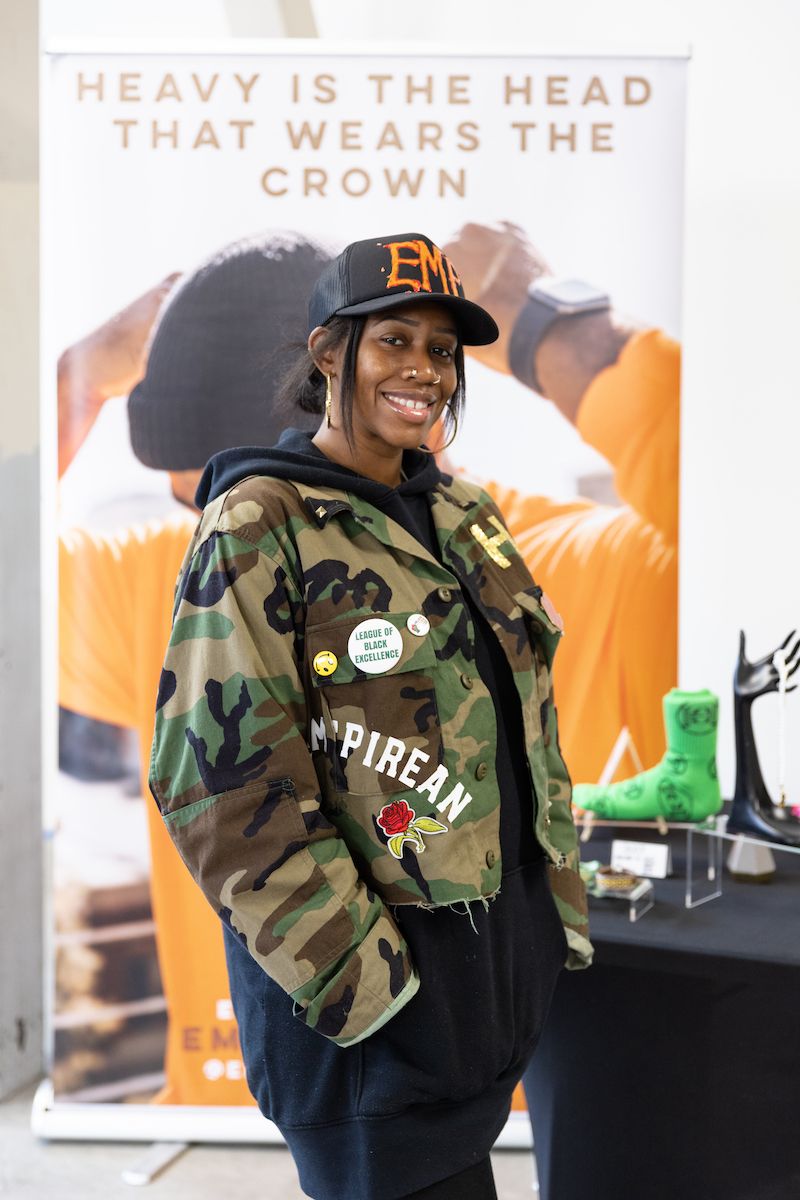
Hazel Sterling from Em'pirean Clothing Co. sells her products at the Micro Market Spaces. (Photo by Ashleigh Reddy)
This Oakland space, currently a base for microbusinesses selling skincare products, clothing and candles, has been doing similar work in San Francisco by providing technical assistance to other community business organizations that are creating spaces for food or microbusiness incubation. But the Sanctuary team has a vision to replicate this model in other regions and has been investigating what it could look like in Seattle, Atlanta, and other cities across the country and the world.
“We are exploring what it means to be this creative and free design firm that is going around the world kind of like Ghostbusters, trying to kick down doors and make things that are sheltered and closed off into open, accessible spaces for the public,” Dotson says.
Reporting for this story was made possible with funding from the Mastercard Impact Fund in partnership with the Mastercard Center for Inclusive Growth.
This article is part of The Bottom Line, a series exploring scalable solutions for problems related to affordability, inclusive economic growth and access to capital. Click here to subscribe to our Bottom Line newsletter.

Deonna Anderson is Next City's editorial director. An award-winning journalist, she has served as a senior editor at GreenBiz and worked with YES! Magazine, KLCC (an NPR affiliate station in Eugene, Oregon), The Lily, Atmos and other media outlets. Anderson is an alumna of the University of California, Davis and the Craig Newmark Graduate School of Journalism at CUNY. She lives in the Bay Area. She was also Next City's 2017-2018 Equitable Cities Reporting Fellow. Follow her on Twitter @iamDEONNA.
Follow Deonna .(JavaScript must be enabled to view this email address)



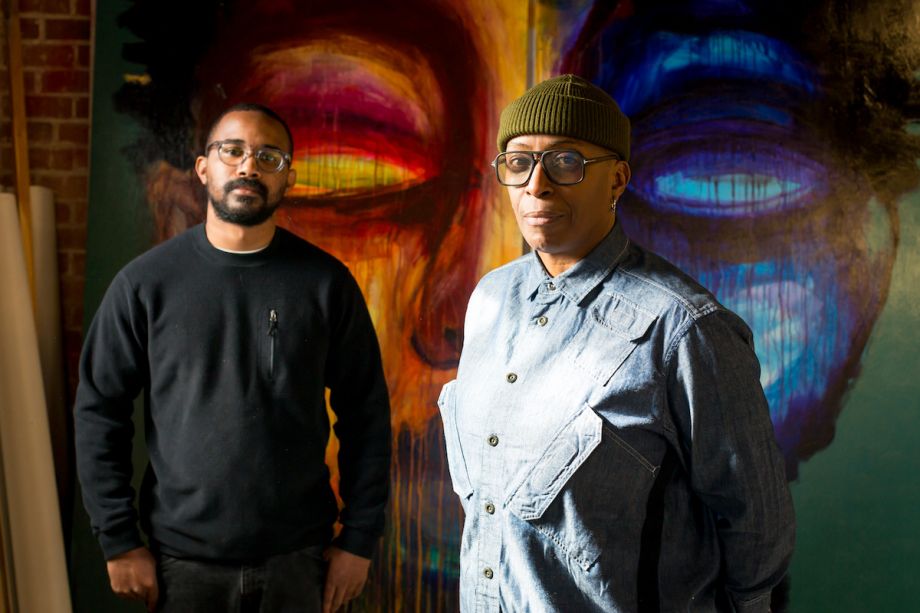


_600_350_80_s_c1.jpg)
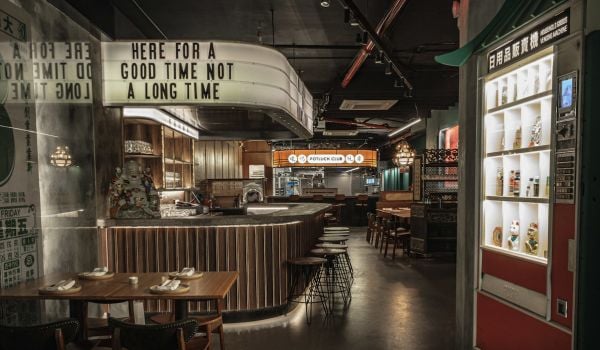
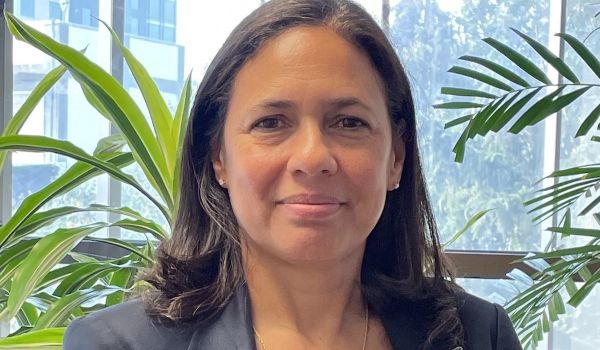
_600_350_80_s_c1.jpg)
